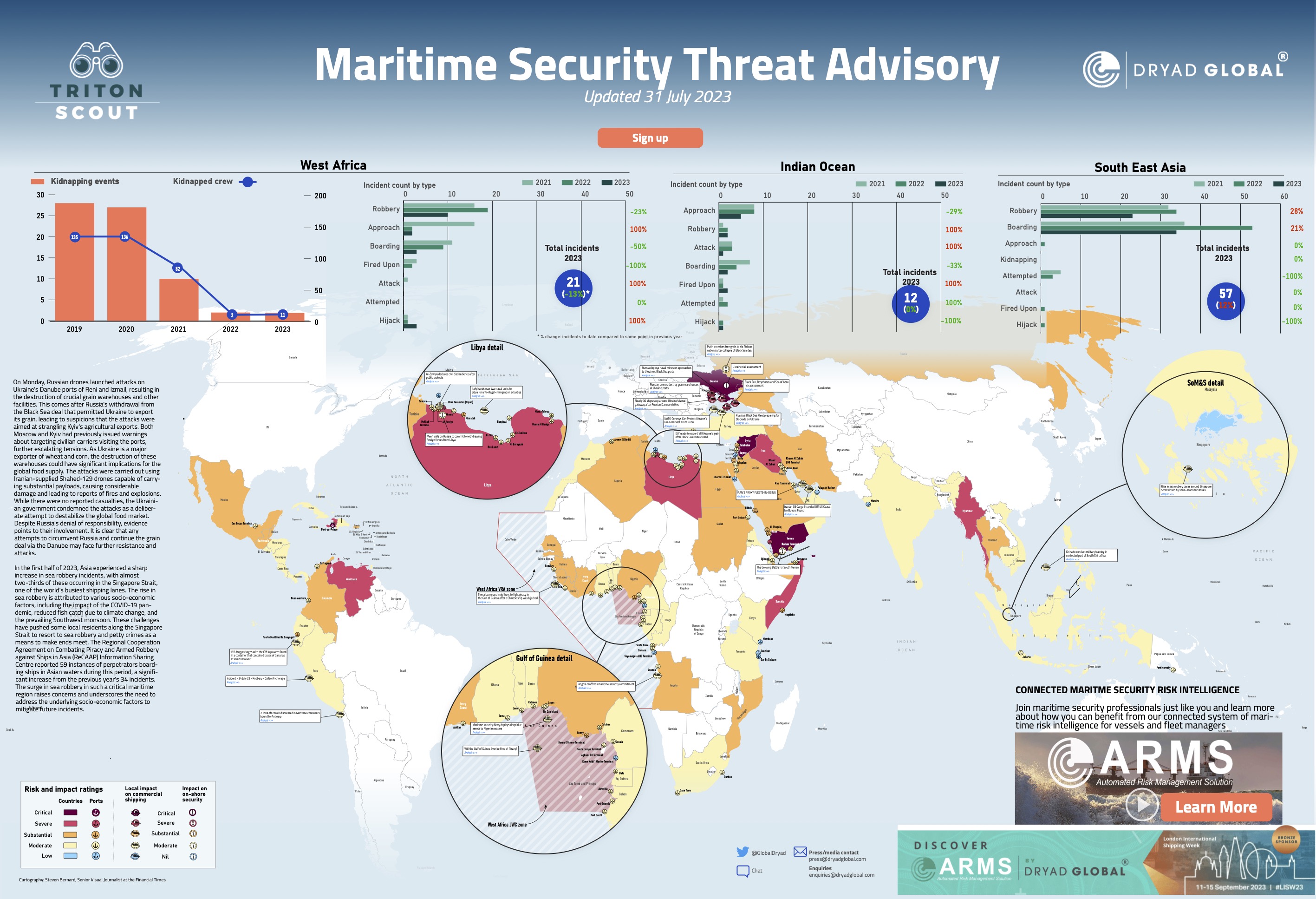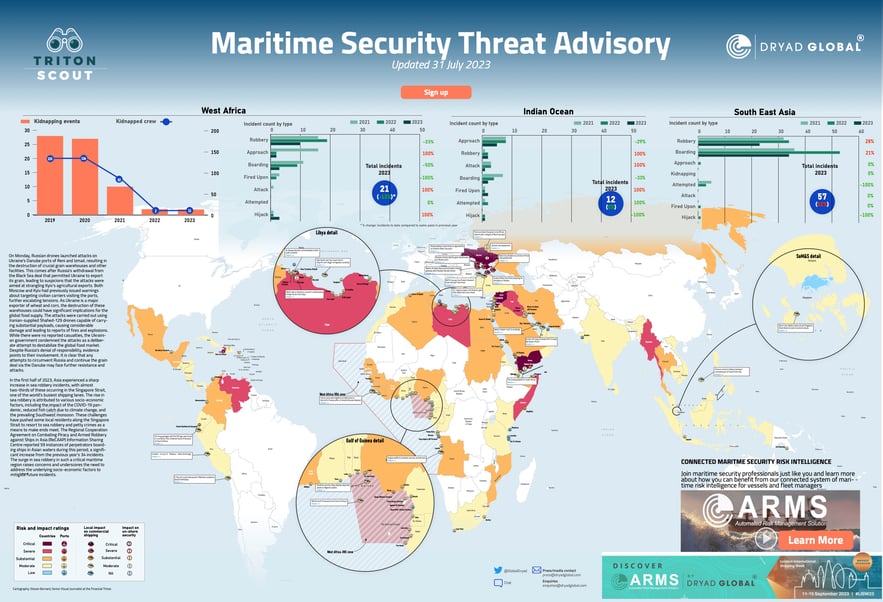Access the latest Maritime Security Threat Advisory for the week commencing 31st July 2023.
👉
On Monday, Russian drones launched attacks on Ukraine's Danube ports of Reni and Izmail, resulting in the destruction of crucial grain warehouses and other facilities. This comes after Russia's withdrawal from the Black Sea deal that permitted Ukraine to export its grain, leading to suspicions that the attacks were aimed at strangling Kyiv's agricultural exports. Both Moscow and Kyiv had previously issued warnings about targeting civilian carriers visiting the ports, further escalating tensions. As Ukraine is a major exporter of wheat and corn, the destruction of these warehouses could have significant implications for the global food supply. The attacks were carried out using Iranian-supplied Shahed-129 drones capable of carry- ing substantial payloads, causing considerable damage and leading to reports of fires and explosions. While there were no reported casualties, the Ukrainian government condemned the attacks as a deliberate attempt to destabilize the global food market. Despite Russia's denial of responsibility, evidence points to their involvement. It is clear that any attempts to circumvent Russia and continue the grain deal via the Danube may face further resistance and attacks.
In the first half of 2023, Asia experienced a sharp increase in sea robbery incidents, with almost two-thirds of these occurring in the Singapore Strait, one of the world's busiest shipping lanes. The rise in sea robbery is attributed to various socio-economic factors, including the impact of the COVID-19 pandemic, reduced fish catch due to climate change, and the prevailing Southwest monsoon. These challenges have pushed some local residents along the Singapore Strait to resort to sea robbery and petty crimes as a means to make ends meet. The Regional Cooperation Agreement on Combating Piracy and Armed Robbery against Ships in Asia (ReCAAP) Information Sharing Centre reported 59 instances of perpetrators board- ing ships in Asian waters during this period, a significant increase from the previous year's 34 incidents. The surge in sea robbery in such a critical maritime region raises concerns and underscores the need to address the underlying socio-economic factors to mitigate future incidents.






